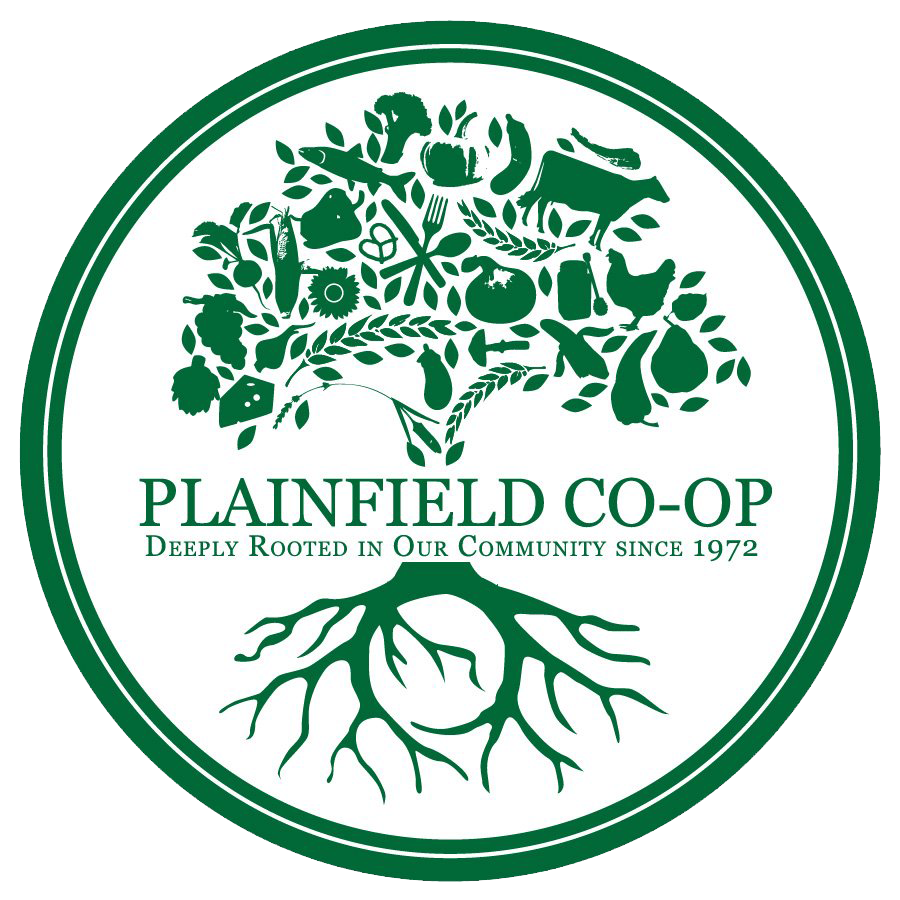by Joseph Gainza, Co-op Board member
Reprinted from Plainfield Co-op Newsletter: Fall 2015
How are the Global Ends of the Plainfield Co-op beneficial for the environment? In the policy governance model under which the Co-op operates “global ends” are what the rest of the world calls goals. These goals aim to achieve benefits for the Co-op as a business, for the member/owners, for all shoppers, for the community, local producers and the regional economy, as well as for the environment.
The end most explicitly pro-environment says our community will have: “A store that sustains the environment through its operations and through the products it offers.” But what does that mean specifically?
Here, some of the other ends help clarify. One says our community will have “An outlet that actively seeks local producers and growers, which supports the local and regional economy.” By purchasing from local producers and growers we avoid the costs to the environment of shipping these commodities hundreds and sometimes thousands of miles to the final consumer. We are told that in the U.S. the average food calorie travels nearly 1,500 miles before someone consumes it. The enormous amount of energy and carbon release from this business model is thus avoided when we buy carrots grown at Littlewood Farm in Plainfield, our milk from Strafford Organic Creamery in Strafford, VT, or our eggs from one of many local producers. Of course, supporting the local economy means that other products, such as furniture, artistic creations, clothing, etc., are made and available to be consumed locally.
Two other ends: “A market for the distribution of healthy, affordable food and other goods,” and “More awareness of the quality and source of our food,” enable shoppers at the Co-op to purchase locally produced organic vegetables, baked goods, wines, beer, and a host of other commodities, the production of which do not deplete the soil or inject toxins into the environment. No insects, birds or amphibians are poisoned at Cate Farm or any of the other organic producers which the Co-op buys from.
The final two ends of our Co-op are less direct in defending the natural environment but have an influence on people associated with cooperatives and enable them to become more aware about how their purchases express their values and have a moral dimension. Those ends: “More awareness of cooperative principles and of other cooperative businesses,” and “A place to build the connections that are essential for a vibrant community,” speak to building an alternative economy which has more than one “bottom line.” The Plainfield Co-op, like co-ops in general, include as bottom lines benefits to its members, customers, and community. Our food co-op includes the natural world in our community, and seeks to enable humans to prosper in a manner that protects and nurtures all other-than-human members.
